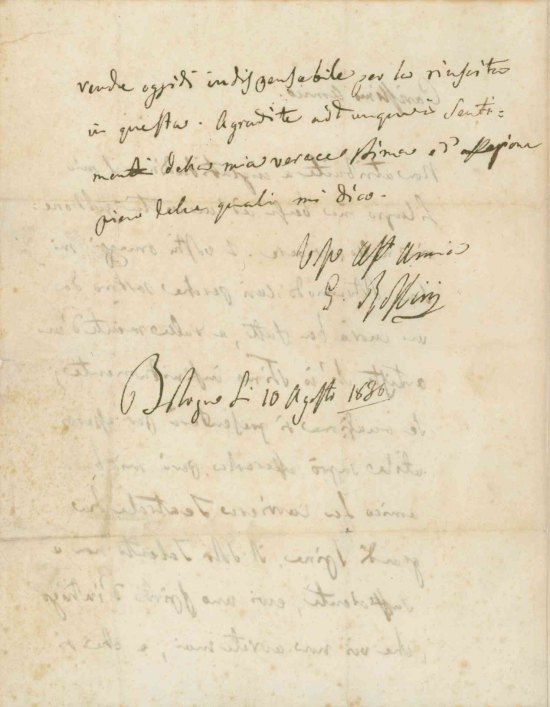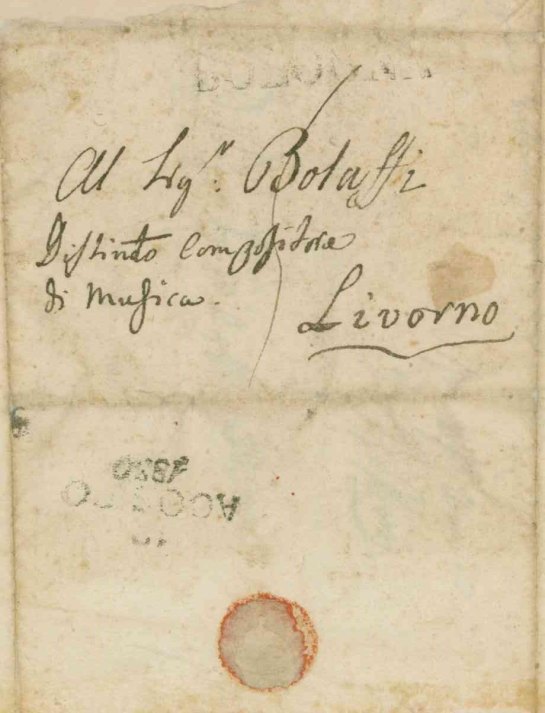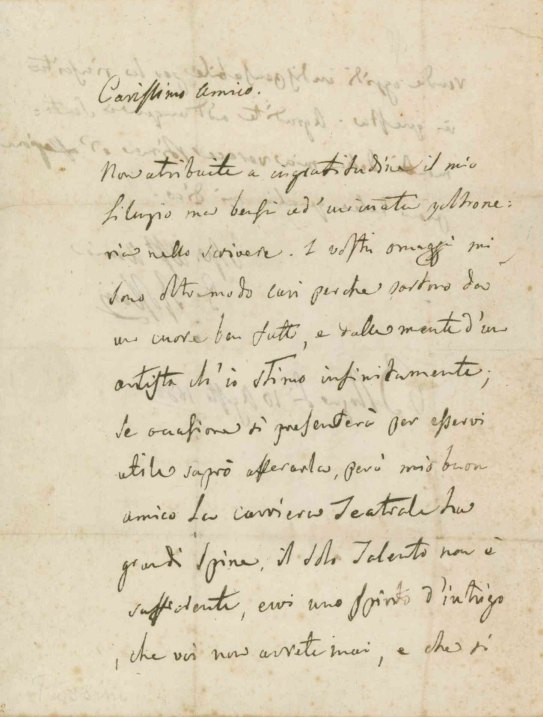 Enlarge Image
Enlarge Image



Rossini, Gioacchino (1792-1868)
Autograph Letter Signed
"G. Rossini". To Michele Bolassi. Bologna, August 10, 1830. Octavo. Two pages of a folded sheet with integral address. With full Italian transcription and English translation. In excellent condition. Typical folds and only very minor spotting.Revealing something about the theatrical practices of the day, Rossini extends himself to Bolaffi with a rather pessimistic warning: the theatrical career has big thorns, talent alone does not suffice, the push of an intrigue would help, which you will never have, and which…is indispensible for success in this matter.
Rossini penned this note shortly after spending almost two weeks in Florence in June 1830, socializing and enjoying concerts while he waited impatiently for the Opéra to send him a new libretto. It is likely he encountered Bolaffi during this visit, as Bolaffi worked at the synagogue in nearby Livorno. (One may be tempted to interpret the year of Rossini's signature as 1836, but this is impossible: he was in Bavaria in August of 1836, and this letter is very clearly signed from Bologna).
Rossini's dim view of theatrical enterprise is perhaps to be expected, as by 1830 he had grown quite weary: the dizzying pace of his early career, the demands of writing and rehearsing Guilluame Tell, the death of his mother in 1827, persistent illness, and financial security all tempted him into retirement after the premiere of Tell in 1829. Although he shortly thereafter signed a contract to compose four additional works for the Opéra in exchange for a lifetime annuity from Charles X, the Second Revolution in July 1830 shattered these plans and with it, his operatic career was over.
